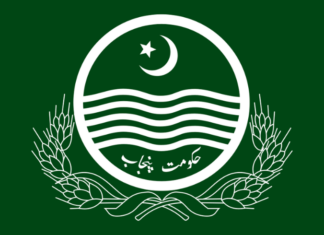Pakistan has an external debt of more than US$ 99.9 billion, of which US$ 9.2 billion is owed to the Paris Club, and roughly US$ 41 billion is owed to various multilateral institutions including the International Monetary Fund (IMF), about US$ 18.2 billion is owed to private debt holders, either in the global capital markets, or through commercial bank borrowings, while the remaining is owed to other bilateral creditors.
Following the great floods of 2022, there has been an accelerated movement calling for climate reparations. Although a hard sell, a quick win here is a reprofiling of existing external debt, such that Pakistan is able to get sufficient fiscal space to redirect its efforts towards, relief, rehabilitation, and reconstruction of the flood-hit areas. Potential economic loss is expected to be more than US$ 30 billion, which includes loss in economic output, as well as damages, and reconstruction costs. The country has been consistently running twin deficits for more than a decade now, and at this stage it doesn’t have any fiscal room to spend on rehabilitation, and reconstruction, potentially leading to disastrous social and economic outcomes for more than 30 million people affected by the floods.
A potential reprofiling of multilateral and bilateral debt, which makes up more than xx percent of total external debt, would delay any potential repayments, thereby freeing up space for investment in rehabilitation and reconstruction during the current, and potential subsequent fiscal year. However, it still remains to be seen whether bilateral sovereign creditors, such as China will be reprofling any debt, other than the usual rollovers. Similarly, there is also substantial Chinese project debt assumed under the umbrella of CPEC – the same may also not be restructured at this stage.
Although the reprofiling would create fiscal space, it would also create a moral hazard, as the foreign currency saved could potentially be used to fund excess consumption, and import luxury automobiles, and other luxury goods, thereby using precious foreign currency saved in the process. In effect instead of utilizing the funds saved for building back better, previous experiences suggest that there is a high likelihood that the same is used to fund conspicuous consumption of the country’s elite, while those adversely affected by climate change barely get to see any of the funding raised, or saved. As elections draw closer, the obsessions to maintain PKR against a narrow range against the US$ may also materialize, as the central bank burns precious foreign currency to maintain a certain peg, thereby depleting foreign exchange reserves in the process.
This time is different. The last time such shenanigans were leveraged to support the value of the PKR, interest rates in US$ terms were close to zero. Meanwhile, as monetary policy across the globe turns hawkish, utilizing the same strategy would be increasingly expensive, and would eventually lead to a very quick disaster. The global macroeconomic environment has changed, but the realization of the same does not seem to be in place among local policymakers.
A debt relief is what the country needs at this stage, even if that is a moratorium on repayment for a year or two. However, if the opportunity is missed, and necessary climate resilient infrastructure is not developed, or the capital is reallocated to bridging deficit for elite consumption, then it will be yet another opportunity missed, and a glaring example of moral hazard. If policy makers don’t get their act together, then it will be yet another opportunity lost to build back better, and we will just have more debt, and even more constrained resource set.
This is essentially about the country’s survival now, or even breaking out from the bad governance-growth loop. If the same continues, then there is no hope. We will have another external liquidity crisis within the next 12 months, and the incoming government will be knocking at the IMF’s door yet again, like it’s groundhog day.








“When credits are low and debts are high,
vaant to smiyal but yu hav 2 sigh,
ven care is pressing u down a bit,
rest if you must BAT DONT U QVIT”
In reference to corruption.
They’re going to rinse through any cash/leeway Pakistan does get and it wont’ be spent on climate resilient infrastructure, it’ll be spent to artificially inflate the rupee again, and then run off with a load of loot, and leave the PTI to deal with the mess.
Mark my words.